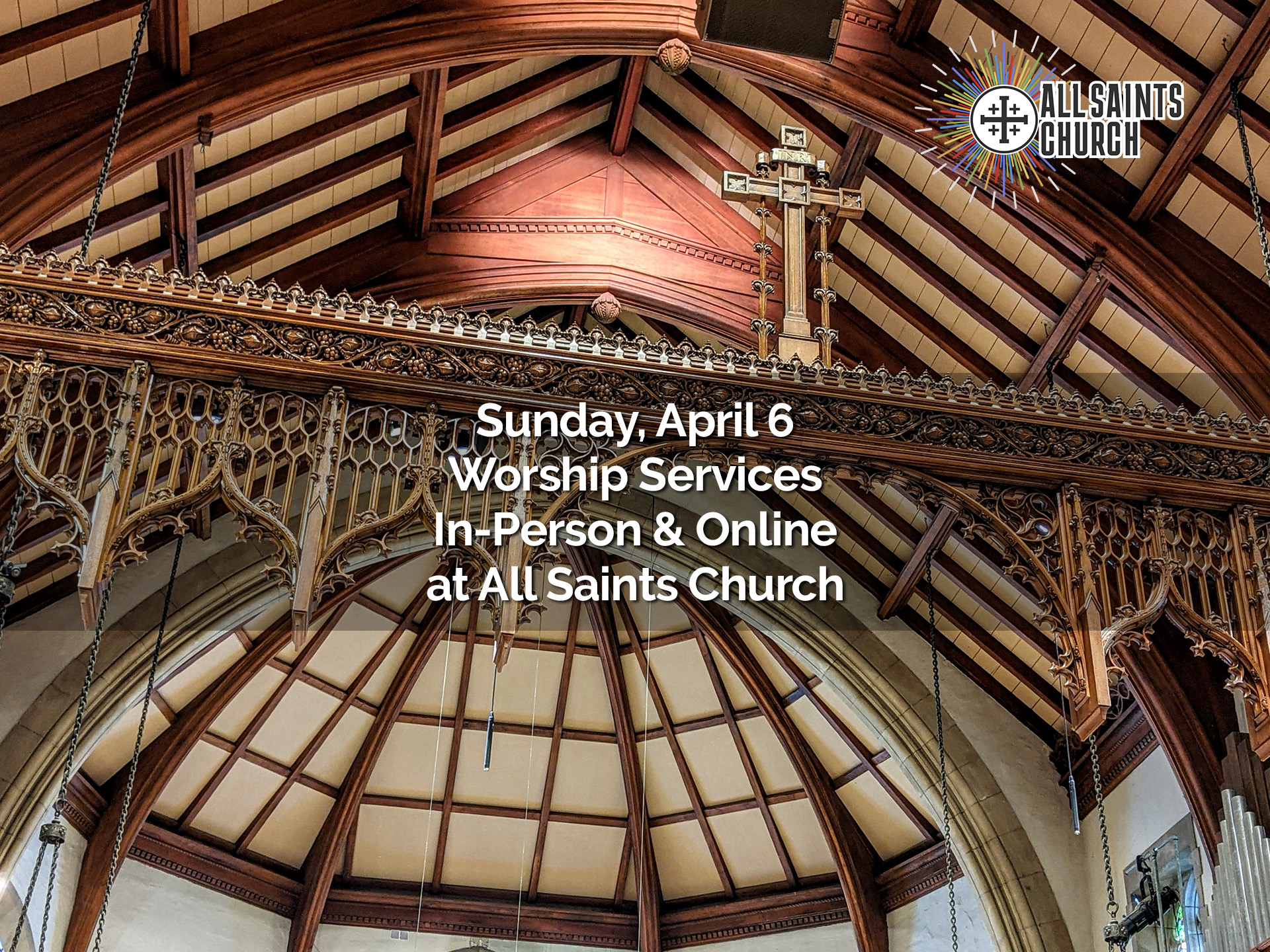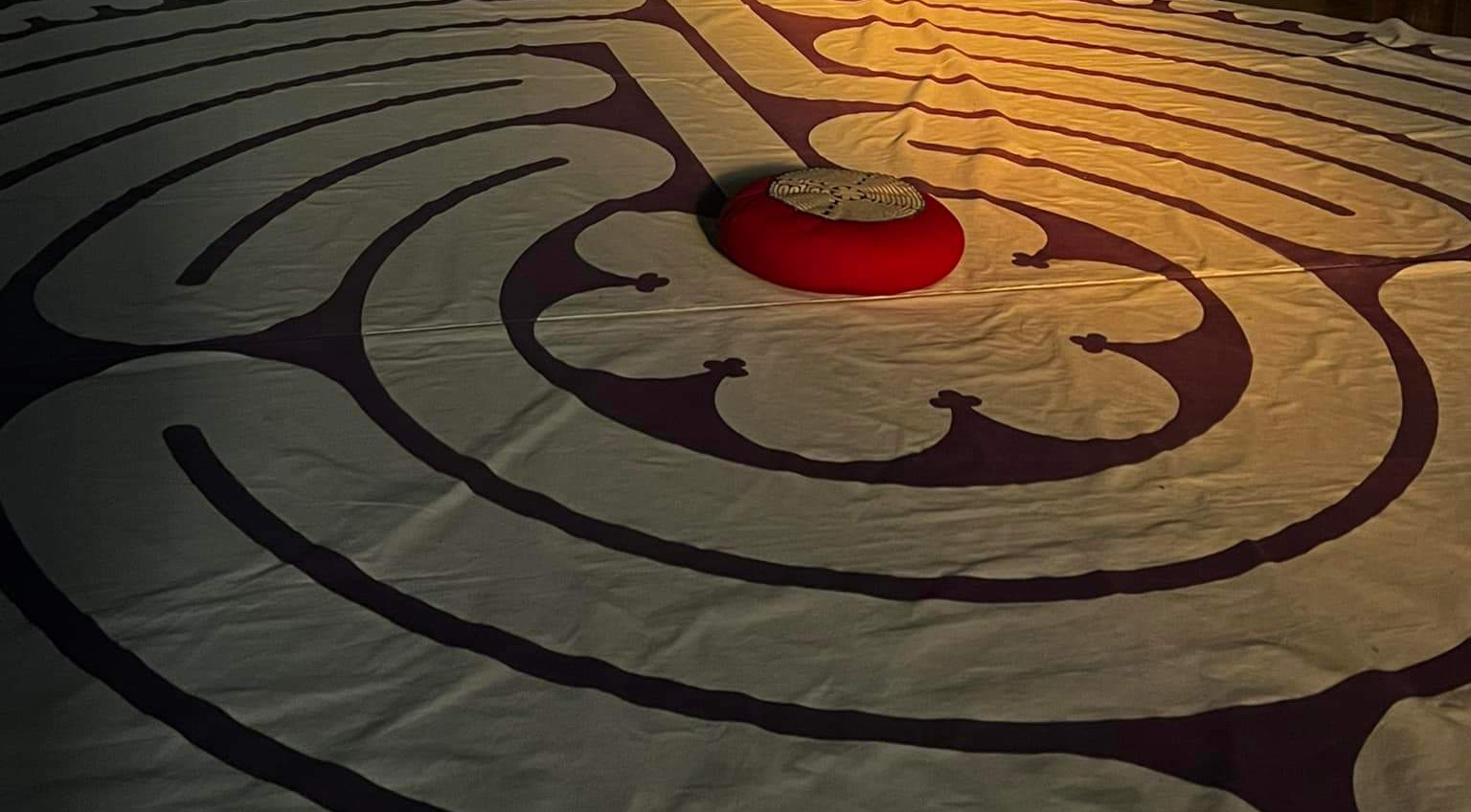by Mike Kinman, Rector of All Saints Church, Pasadena
The Gospel isn’t meant to be gulped down on Sunday morning, but gnawed on through the week so it really becomes a part of us. You’ve got to work at it,
like a dog with a good bone! Here’s the Gospel for the Seventh Sunday of Easter… with some notes on unity vs. uniformity and wisdom from Jesus, the Book of Common Prayer and U2. Gnaw away!
Seventh Sunday of Easter: John 17:1-11
Jesus looked up to heaven and said, “God, the hour has come; glorify your Son so that the Son may glorify you, since you have given him authority over all people, to give eternal life to all whom you have given him. And this is eternal life, that they may know you, the only true God, and Jesus Christ whom you have sent. I glorified you on earth by finishing the work that you gave me to do. So now, God, glorify me in your own presence with the glory that I had in your presence before the world existed.
“I have made your name known to those whom you gave me from the world. They were yours, and you gave them to me, and they have kept your word. Now they know that everything you have given me is from you; for the words that you gave to me I have given to them, and they have received them and know in truth that I came from you; and they have believed that you sent me. I am asking on their behalf; I am not asking on behalf of the world, but on behalf of those whom you gave me, because they are yours. All mine are yours, and yours are mine; and I have been glorified in them. And now I am no longer in the world, but they are in the world, and I am coming to you. Holy God, protect them in your name that you have given me, so that they may be one, as we are one. “
The Backstory – What’s Going On Here?
John 17 is the end of the long “farewell discourse” — Jesus’ “last words” to his disciples. He ends it with a prayer … a prayer that our lectionary text unfortunately slices in half, giving us only the first section. (Read the whole prayer here )
Jesus prays for three things, two of which are in this portion. First, he prays for himself (v.1-8). Next, he prays for his disciples (v. 9-19). Finally (v. 20-26) he prays for those who will become his followers (but we don’t get that part here).
Jesus’ prayer is a prayer of completion every bit as much as John 19:30 , when he said from the cross “It is accomplished.” Immediately before the prayer, the disciples have said, “Now we know that you know all things, and need none to question you; by this we believe that you came from God.” or, in other words, “OK, we finally get it!” With that assurance, Jesus can move on to the cross, knowing that his “mission statement” of John 10:10 (“I have come that they might have life and have it abundantly”) has been accomplished, for “this is eternal life, that they may know you, the only true God, and Jesus Christ whom you have sent.”
Jesus’ work was to take those God had given him, and show them the love and essence of God fully through himself. He now moves to the cross and beyond to “be glorified so that God might be glorified” … show that glory (“the glory as of a father’s only son, full of grace and truth. – John 1:14) to the whole world.
A few things to chew on:
Jesus here defines eternal life differently than most of us are used to. It is simply knowing God and Christ. It’s not a heaven where we lie back on a couch being fed grapes or even where we get to see all the people we cared about who have gone past. Eternal life, our destiny and God’s dream for us, is simply just knowing God with the greatest depth of intimacy. If that is our destiny and greatest joy (and Jesus says it is), it is the end to which our whole lives should be directed. That means every second of our lives is a “teachable moment.” Jesus ended his words to his disciples with a prayer in part to show us how we should be — surrounding everything with prayer. Always asking God, “How can I know you better?” “Teach me.” “Use me.” “Be glorified in me.”
Jesus talks about his disciples as “those whom you gave me.” They’re not “those whom I took” or “those whom I converted.” They already belonged to God … as all people and all creation already belongs to God. Spreading the Gospel is not about claiming people for God — God has us all already. It’s about inviting people to join with us on a journey deeper into the God who already owns us. Inviting others, with us, to be “given to Christ” as a commitment to
walk down that road together.
Try this:
Jesus asked God to glorify him so that God might be glorified … and for Jesus, him being glorified was not about being put on a throne but offering himself fully out of love.
The world tells us to avoid pain and to chase after glory for ourselves. But Jesus says the opposite. Embrace sacrifice, even painful sacrifice … and not for our own glory but for the glory of God.
This week, take a few minutes each morning and pray that prayer of Jesus, “God, glorify me so that you might be glorified.” Pray it realizing that the glory you pray for yourself is about sacrifice and the glory gained is not for you but for God. Then when the opportunity for giving of yourself comes up during the day, try to remember and “be glorified so God might be glorified.”
Write this:
Jesus prays: “Holy God, protect them in your name that you have given me, so that they may be one, as we are one.”
There is a difference between unity and uniformity. God created us in incredible and beautiful diversity, which means God dreams for us to be one – unified – but not the same – not uniform. Too often, we try to achieve unity by enforcing uniformity. The rode of Christ is to come together while staying unique. It is the role of love over dogma.
If you journal this week, think of someone who is incredibly different from you. Then imagine what a story of unity between the two of you might be that doesn’t mandate uniformity. Write that narrative of coming together. See if it changes your relationship.
One
One love, we get to share it
Leaves you baby,
if you don’t care for it. – U2
Jesus prays “Holy God, protect them in your name that you have given me, so that they may be one, as we are one.”
Unity is a concept that invites naïve and easy sentimentality. Weddings are often full of it. But then the marriage begins, and it’s hard work.
It’s hard because “the two becoming one” in a sacrament that “signifies to us the mystery of the union between Christ and his church” is about mutual giving up of self for the sake of the other. That swims against the whole tide of our culture, which worships individual rights. One reason marriages end — either suddenly with divorce or slow cohabitating disintegration — because one or both people become reclusive or abusive and either refuse to give of themselves or sometimes brutally take from the other.
The same is true for us as the Church. Jesus’ prayer here is the most oft-quoted text in the quest for Christian unity. But as a church where our mission is “to restore all people to unity with God and each other in Christ” we spend a lot of time and energy insisting on our own individual way, calling each other either heretics or suppressors of the Spirit and refusing to even enter into conversation or stand at the same table with others for fear of losing an inch.
It’s nothing new. Just read the letters of Paul. And it’s not surprising. Unity — being one — is hard.
The Irish rock band, U2, (who was just in Pasadena this past weekend) knows this. They went through a period at one of the heights of their popularity where the band almost came apart because they each were pushing for their own way. They tell a story of a song just emerging from the conflict. A song called One. The heart of the song is this refrain:
We’re one, but we’re not the same.
We get to carry each other, carry each other… one.
Unity — being One — is hard, because even though we are one because God sees us as one, we’re not the same. But the answer is that we get to carry each other. It’s not only hard, it’s an honor, a privilege and a joy.
And because U2 decided to give of self for the sake of the whole, because they decided to embrace that they get to carry each other, the world enjoys beautiful music today.
How can we as the church follow their — and Jesus’ — lead?
Check out the rest of Sunday’s readings
The Lectionary Page has all of the readings for this Sunday and every Sunday — just click here for this week.
Collect for 7 Easter: Pray this throughout the week as you gnaw on this Gospel.
O God, the King of glory, you have exalted your only Son Jesus Christ with great triumph to your kingdom in heaven: Do not leave us comfortless, but send us your Holy Spirit to strengthen us, and exalt us to that place where our Savior Christ has gone before; who lives and reigns with you and the Holy Spirit, one God, in glory everlasting. Amen.
Want to read more?
“The Text This Week” is an excellent online resource for anyone who wants to dive more deeply into the scriptures for the week.
Mike Kinman is the Rector of All Saints Church in Pasadena. “Gnaw on This” is a weekly publication.



